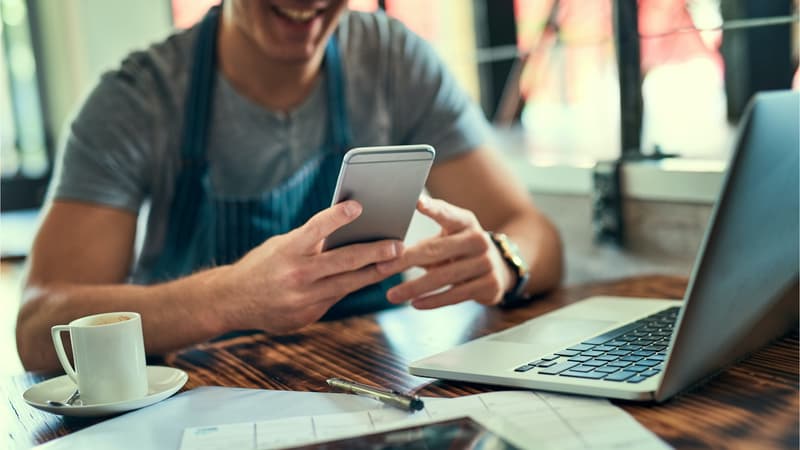Whether it’s to take advantage of better prices on the internet, to watch video content that may be blocked in the country you’re in, or simply to make sure you have a perfectly secure and anonymous internet connection, a VPN can do it all for you. with just a few clicks.
Behind these three letters we find a technically complex service, but literally transparent to the user and now offered by service providers that have simple applications for all major platforms: PC, smartphone or tablet. Let’s take a closer look!
VPN Definition: What Does It Mean?
Let’s start with the simplest: what do the three letters VPN mean? These are the acronyms for Virtual Private Network, that is, a virtual private network. A VPN is a service that sits between your network connection and the Internet and allows you to encrypt your connection, make it anonymous, and hide information such as your IP address or geographic location. This opens up various possibilities and uses of the Internet that would be impossible “at first glance”: bypassing content blocking for rights reasons, hiding your IP address from online booking sites, or even surfing the Internet without leaving a trace.
How does the VPN work?
To explain how a VPN works, we can start from what usually happens when you connect to the Internet, for example to go to a shopping or reservation site. It connects to your Internet Service Provider, which routes your request to the site in question. The provider can see your activity, as can companies, websites, government actors, or sadly, cybercriminals.
The VPN introduces a crucial element: when you connect to a VPN, the service creates a private and encrypted tunnel. You connect to a VPN server, and it is that server that connects you to the Internet. The traffic between the VPN server and the Internet is invisible to outside “eyes”. The site you are connecting to also sees the VPN server address, which helps trick a video service into thinking you are connecting from a particular country. The traffic is encrypted and therefore secure, which has a positive effect on your protection when you connect to a public Wi-Fi access point (station, shopping centre, etc.).
Is a VPN legal?
A VPN is a service that allows you to encrypt your Internet connection and connect to different servers available in many countries. In and of itself, there is nothing illegal about a VPN, and you can simply use it to do everything you normally do on the Internet. The only difference is that the traffic is encrypted, which is not illegal per se. Of course, just like with a “standard” internet connection, it is possible to commit illegal acts while using a VPN, but then it is these uses that are illegal and not the act of using a VPN for that.
How to use a VPN on the Internet?
Using a VPN is simple, but depending on the provider, the process may differ slightly depending on their app interface. However, for all “known” VPNs, the basic principles are the same. You must first subscribe to a service that is often paid for. Depending on the service you choose, rates can vary and can be offered for a month, 1 year, 2 years, or even 3 years.
Every VPN provider offers apps to install on a PC, Mac, iPhone, or even an Android smartphone. Most of the services also offer apps for Linux and even for smart TV platforms or internet routers. Mobile apps can be found in the Apple App Store or the Google Play Store for Android.
The app generally offers two options: use the closest server to have the best connection, or choose your “destination” country to connect from a particular country, especially for streaming.
Once the connection is established, the VPN runs in the background and you can continue with your business on the Internet.
What can a VPN do for you?
A VPN allows several uses. It will be mainly used to secure your Internet connection, especially in stations or places that offer a public Wi-Fi hotspot. It is possible that these points are poorly secured, and in this case, a VPN allows you to have an encrypted connection and make your data invisible to hackers. Due to lack of vigilance, one can even connect to a fake Wi-Fi network whose name resembles the establishment’s network. These rogue access points aim to intercept user data.
Another interesting use concerns the possibilities of unblocking the Internet connection. For their own reasons, your Internet service provider may decide to restrict your connection to specific sites, for example because they consume too much bandwidth. By connecting to a VPN, your ISP does not see your Internet activity and therefore cannot perform this limitation.
Of course, we often talk about VPN in relation to video streaming services or TV channel retrieval. For reasons of audiovisual rights or media chronology, the content may not be available in your country or in a country where you are on vacation or travel. With VPN, you can choose your server location, and that’s the location the service will see, allowing you to access blocked content.
Finally, a VPN can bypass devices installed by booking sites that sometimes display different prices depending on the country you connect to or based on an IP address that has already visited the site.
The BFMTV newsroom was not involved in the production of this content. BFMTV is likely to receive compensation when one of our readers makes a purchase through the links included in this article.
Source: BFM TV


